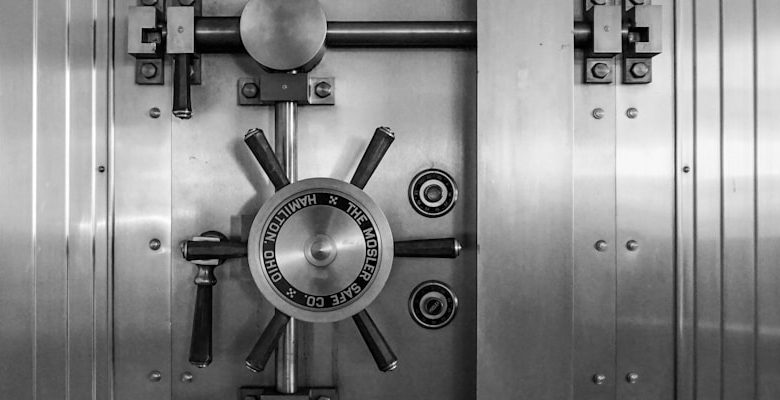The Role of Cold Storage in Cryptocurrency Security

- Understanding the importance of cold storage in cryptocurrency security
- How cold storage protects your digital assets from online threats
- Comparing hot wallets and cold storage: Which is the safer option?
- Key features to look for in a reliable cold storage solution for cryptocurrencies
- Best practices for setting up and maintaining a cold storage system for your crypto holdings
- Exploring the potential risks and benefits of using cold storage for cryptocurrency security
Understanding the importance of cold storage in cryptocurrency security
Cryptocurrency security is of utmost importance in the digital age, where cyber threats are prevalent. One key aspect of securing your digital assets is utilizing cold storage. Cold storage refers to keeping your cryptocurrency offline, away from the internet, to prevent hacking attempts and unauthorized access.
Understanding the significance of cold storage in cryptocurrency security is crucial for safeguarding your investments. By storing your digital assets in a cold wallet, such as a hardware wallet or a paper wallet, you can mitigate the risk of online attacks and theft. Cold storage provides an extra layer of protection that hot wallets, which are connected to the internet, cannot offer.
When you use cold storage for your cryptocurrency, you are taking proactive measures to secure your funds. By keeping your private keys offline, you reduce the risk of them being compromised by malicious actors. This added security measure can give you peace of mind knowing that your investments are safe from cyber threats.
How cold storage protects your digital assets from online threats
Cold storage is a secure way to protect your digital assets from online threats such as hackers and malware. By storing your cryptocurrency offline in a cold wallet, you can significantly reduce the risk of unauthorized access to your funds. This method involves keeping your private keys and passwords offline, making it much harder for cybercriminals to steal your assets.
One of the main advantages of cold storage is that it is not connected to the internet, which means it is not vulnerable to online attacks. This makes it an ideal solution for long-term storage of your cryptocurrency holdings. By using a hardware wallet or a paper wallet, you can keep your private keys safe and secure, away from potential threats lurking on the internet.
In addition to protecting your digital assets from hackers, cold storage also safeguards them from other online threats such as phishing scams and ransomware attacks. By keeping your private keys offline, you can ensure that your funds are safe from malicious actors trying to steal your sensitive information. This added layer of security can give you peace of mind knowing that your cryptocurrency is well-protected.
Comparing hot wallets and cold storage: Which is the safer option?
When it comes to safeguarding your cryptocurrency, one of the key decisions you’ll need to make is whether to use a hot wallet or cold storage. Each option has its pros and cons, but ultimately, the priority is ensuring the security of your funds. Hot wallets are online wallets that are connected to the internet, making them convenient for frequent trading. However, this also makes them more vulnerable to hacking and cyberattacks. On the other hand, cold storage involves storing your cryptocurrency offline, away from potential online threats. While this may be less convenient for active trading, it provides a higher level of security for your funds.
In terms of safety, cold storage is generally considered the safer option compared to hot wallets. With cold storage, your private keys are kept offline, making it much harder for hackers to access them. This reduces the risk of unauthorized transactions and theft of your cryptocurrency. On the other hand, hot wallets are more susceptible to security breaches due to their online nature. Hackers can exploit vulnerabilities in the system to gain access to your funds, putting your investment at risk.
In conclusion, while hot wallets may offer convenience for day-to-day transactions, cold storage is the recommended option for long-term security of your cryptocurrency holdings. By keeping your private keys offline and away from online threats, you can reduce the risk of hacking and unauthorized access to your funds. Ultimately, the choice between hot wallets and cold storage comes down to your individual needs and preferences. However, prioritizing security should be the primary consideration when deciding where to store your cryptocurrency.
Key features to look for in a reliable cold storage solution for cryptocurrencies
When considering a cold storage solution for cryptocurrencies, there are several key features to look for to ensure the security of your digital assets. One important factor is the level of encryption provided by the storage solution. Strong encryption is essential to protect your cryptocurrencies from unauthorized access.
Another important feature to consider is multi-signature support. This feature requires multiple signatures to authorize a transaction, adding an extra layer of security to your cold storage solution. Additionally, look for solutions that offer offline storage options, such as hardware wallets or paper wallets, to minimize the risk of hacking.
It is also crucial to choose a cold storage solution that offers backup and recovery options. In the event of a hardware failure or loss of access to your wallet, having a backup can help you restore your access to your cryptocurrencies. Furthermore, consider the ease of use and accessibility of the cold storage solution to ensure that you can easily manage your digital assets.
Best practices for setting up and maintaining a cold storage system for your crypto holdings
When it comes to safeguarding your cryptocurrency holdings, setting up and maintaining a cold storage system is crucial. Cold storage, which involves storing your digital assets offline, provides an added layer of security against cyber threats such as hacking and unauthorized access. To ensure the safety of your crypto holdings, here are some best practices to follow:
- Choose a reputable hardware wallet: Opt for a hardware wallet from a trusted manufacturer to store your cryptocurrencies securely. Hardware wallets are considered one of the safest options for cold storage due to their offline nature.
- Generate strong passwords and private keys: When setting up your cold storage system, make sure to create strong passwords and private keys that are difficult to guess. Avoid using easily predictable combinations and consider using a password manager for added security.
- Backup your wallet: Always create backups of your wallet and store them in multiple secure locations. This will ensure that you can recover your funds in case of any hardware failure or loss.
- Keep your cold storage offline: Once you have transferred your cryptocurrencies to your cold storage wallet, keep it disconnected from the internet. This will minimize the risk of cyber attacks and unauthorized access to your funds.
- Regularly update your security measures: Stay up to date with the latest security updates and patches for your hardware wallet. Regularly check for firmware updates and security enhancements to protect your crypto holdings.
By following these best practices for setting up and maintaining a cold storage system for your crypto holdings, you can enhance the security of your digital assets and minimize the risk of theft or hacking. Remember that the safety of your cryptocurrencies is paramount, and taking proactive steps to secure them will give you peace of mind in the volatile world of cryptocurrency.
Exploring the potential risks and benefits of using cold storage for cryptocurrency security
Cryptocurrency security is a critical consideration for investors and traders alike. Cold storage is one method that can be utilized to enhance the security of digital assets. By storing cryptocurrencies offline in cold storage, investors can mitigate the risk of cyber attacks and unauthorized access to their funds.
There are several potential benefits to using cold storage for cryptocurrency security. One of the primary advantages is that cold storage is not connected to the internet, making it less vulnerable to hacking attempts. Additionally, cold storage can offer an extra layer of protection against malware and other cybersecurity threats.
However, there are also risks associated with using cold storage for cryptocurrency security. One potential downside is that cold storage can be less convenient than hot storage solutions, which are connected to the internet. This can make it more challenging to access funds quickly when needed.
In conclusion, while cold storage can offer enhanced security for cryptocurrencies, it is essential for investors to weigh the potential risks and benefits before deciding whether to use this method. By carefully evaluating their individual security needs and risk tolerance, investors can determine whether cold storage is the right choice for safeguarding their digital assets.



